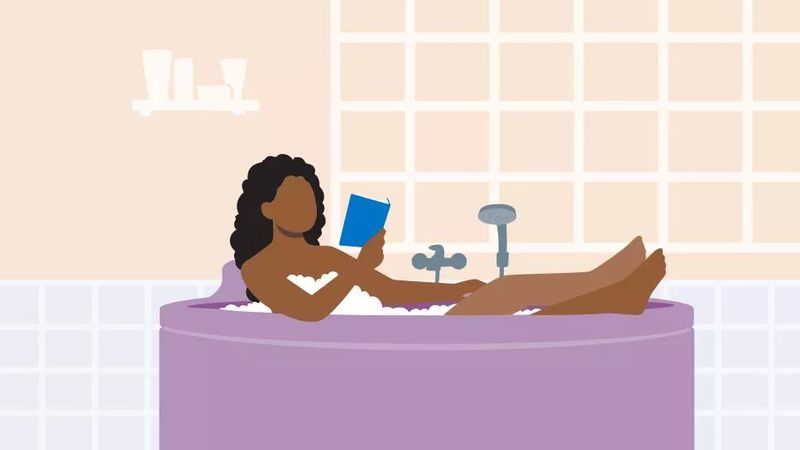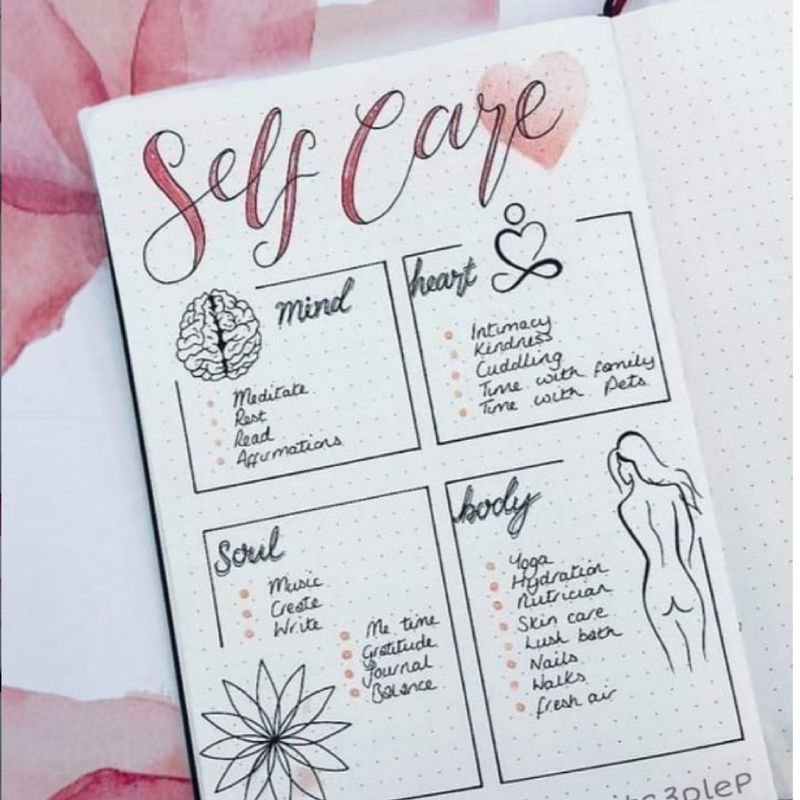You can function. You can show up. You can keep everything moving. And still quietly forget how to love yourself in the process.
The signs don’t always scream—they show up in small, everyday choices that tell your body and mind you don’t come first. Here are 16 subtle ways you might be leaving yourself behind.
1. You say “I’m fine” when you’re clearly not
It’s easy to brush off your true feelings with a simple “I’m fine,” but it can be more damaging than you think. This habit creates a barrier between you and others, preventing genuine connections. When you constantly tell yourself you’re okay, you start believing that addressing your feelings is unnecessary.
This self-imposed facade makes it hard for you to seek help or express your needs. Over time, it can lead to feelings of loneliness and isolation, as you become disconnected from your emotions.
Instead of masking your feelings, try acknowledging them. Allow yourself to express when you’re overwhelmed, even if it’s just to yourself in the mirror. This small shift can open doors to healthier interactions and self-awareness.
2. You feel guilty when you’re not being productive
Feeling guilty for taking a break is a common trait among hardworking individuals. It’s like productivity has become a measure of self-worth. However, this mindset can be exhausting and detrimental to your well-being.
When rest is seen as something you must earn, it becomes a source of stress rather than relaxation. You might constantly check emails during downtime or feel anxious about tasks left undone.
Shifting your perspective on rest—from a luxurious indulgence to a necessary recharge—can be revolutionary. Allow yourself to pause and enjoy moments without the burden of guilt. Remember, rest is crucial for maintaining a balanced life.
3. You never use the good stuff—perfume, dishes, your own time
Do you save your best perfume or fancy dinnerware for special occasions that never seem to come? This habit suggests you might not feel deserving of enjoying the finer things in life.
By putting off using the “good stuff,” you delay your own happiness and sense of satisfaction. It’s like denying yourself small joys because you don’t see yourself as worthy of them.
Try breaking this cycle by treating every day as a special occasion. Wear that perfume on a regular day, use the fine china for yourself, and savor those moments. It’s a simple way to show yourself love and appreciation.
4. You apologize before asking for what you need
Starting a request with an apology can imply that you believe your needs are a burden to others. This habit diminishes your self-worth and makes you feel like an inconvenience.
When you preface requests with “I’m sorry,” it sends a subtle message that your needs are secondary. This can affect how others perceive and respond to you, often leading to unmet needs.
Instead, practice stating your needs confidently, without unnecessary apologies. It might feel awkward at first, but it reinforces the idea that your needs are valid and important. Respecting your own needs is a form of self-love.
5. You don’t set boundaries because it “feels mean”
Setting boundaries can feel uncomfortable, especially if you’re a people-pleaser. The fear of appearing “mean” prevents you from protecting your personal space and energy.
Without boundaries, you become susceptible to burnout, as people may take advantage of your generosity. This lack of personal limits often leads to resentment and frustration.
Begin by identifying what truly matters to you and communicate these boundaries clearly and kindly. Establishing limits is not about pushing others away but about caring for yourself. Boundaries are essential for maintaining healthy relationships and self-respect.
6. You rarely do things just because they make you happy
When was the last time you did something solely for joy? If happiness feels like an optional extra, you might be neglecting your own emotional well-being.
Ignoring your passions can lead to a dull, monotonous life devoid of excitement or fulfillment. Over time, this can dampen your enthusiasm and creativity.
Make a conscious effort to indulge in activities that bring you joy, whether it’s painting, dancing, or simply reading a book. Prioritizing happiness is not selfish; it enriches your life and enhances your ability to love and connect with others.
7. You tolerate draining people out of habit
Remaining in friendships or relationships that exhaust you is a sign of self-neglect. You might tolerate these dynamics because they’re familiar or because change feels daunting.
However, constantly dealing with negativity can erode your self-esteem and affect your mental health. It’s important to recognize when a relationship becomes more exhausting than enriching.
Consider setting limits on interactions that drain you, and focus on surrounding yourself with people who uplift and support you. Your emotional well-being should not be sacrificed for the sake of habit or obligation.
8. You talk to yourself in a way you’d never speak to a friend
The inner dialogue you maintain can greatly affect your self-perception. If you find yourself using harsh, unforgiving language with yourself, it’s a sign you’re lacking self-compassion.
This critical voice can lead to feelings of inadequacy and low self-esteem. You wouldn’t criticize a friend so ruthlessly, so why do it to yourself?
Practice treating yourself with kindness and understanding. Replace negative self-talk with affirmations and gentle encouragement. Over time, this can transform your relationship with yourself, fostering a more loving and supportive internal environment.
9. You avoid mirrors—not out of hate, but detachment
Avoiding mirrors can be less about dislike and more about feeling disconnected from yourself. This detachment indicates a lack of self-awareness and acceptance.
When you don’t acknowledge your own reflection, it’s easy to overlook your needs and emotions. This avoidance can stem from a deeper issue of neglecting your self-image and worth.
Start by spending a few moments each day looking at yourself in the mirror. Acknowledge and appreciate what you see, flaws and all. This practice can help rebuild a connection with yourself, fostering self-love and acceptance.
10. You downplay your emotions until they explode
Reprimere le emozioni might seem like the easier route, but it often leads to an emotional outburst. By downplaying your feelings, you deny yourself the right to process and understand them.
This habit can result in prolonged stress and anxiety, as bottled emotions eventually find a way to surface. It’s like a pressure cooker that eventually bursts.
Allow yourself to feel and express emotions as they arise. Journaling or speaking to someone you trust can be powerful tools for emotional release. Acknowledging your emotions fosters a healthier, more balanced emotional state.
11. You rush through meals, moments, and mornings
Rushing through your day, especially meals, can make you feel disconnected from your own life. This fast-paced routine leaves little room for mindfulness or appreciation of the present.
When you’re always in a hurry, you miss out on small, meaningful moments that can enrich your day. This habit can lead to feeling like life is passing you by.
Try to slow down and savor your meals, moments, and mornings. Be present in your daily activities, and take time to appreciate the simple joys. Mindfulness can transform mundane routines into cherished rituals.
12. You celebrate others—but never yourself
Celebrating others’ achievements is wonderful, but neglecting your own successes can diminish your self-worth. When you don’t acknowledge your accomplishments, it’s like telling yourself they don’t matter.
This habit can lead to feelings of inadequacy and self-doubt. Everyone deserves to be recognized and celebrated, including you.
Take time to acknowledge and celebrate your own achievements, no matter how small. Whether it’s a mental note or a quiet personal celebration, recognizing your successes reinforces your value and self-love.
13. You put off medical, emotional, or personal care
Procrastinating on appointments and self-care is a common form of self-neglect. It’s easy to push your needs aside when life gets busy, but neglecting these areas can have long-term consequences.
Delaying medical, emotional, or personal care can lead to bigger issues down the road. It sends a message that your well-being is not a priority.
Prioritize scheduling regular check-ups and self-care activities. Treat these appointments as non-negotiable, just like any other important commitment. Your health and happiness depend on it.
14. You stay in situations that shrink you
Staying in jobs or relationships that make you feel small can erode your sense of self-worth. It’s easy to stay out of loyalty or fear of change, but this can lead to prolonged unhappiness.
Quando you remain in situations that don’t serve you, it’s a form of self-abandonment. You deserve environments that encourage growth and fulfillment.
Consider what truly makes you feel alive and inspired, and seek opportunities that align with those values. Embracing change can be daunting, but it’s essential for your personal growth and happiness.
15. You never ask, “What do I want?”
If you don’t regularly consider what you want in life, you might feel like you’re just going through the motions. Ignoring your desires can leave you feeling unfulfilled and stagnant.
This habit often stems from focusing solely on survival rather than thriving. Over time, it can lead to a loss of direction and purpose.
Take time to reflect on your goals and desires, no matter how small they might seem. Asking yourself “What do I want?” is a powerful tool for self-discovery and growth. It’s never too late to start pursuing your dreams.
16. You see self-love as “extra,” not essential
Viewing self-love as an unnecessary luxury can prevent you from fully embracing it. When you see it as “extra,” you might never prioritize it in your life.
This mindset can lead to feelings of emptiness and a lack of fulfillment, as you’re constantly putting others’ needs before your own.
Recognize that self-love is the foundation of a healthy, balanced life. It’s not a reward to be earned, but a necessary component of your well-being. Embrace practices that nurture self-love, and watch as your life becomes richer and more fulfilling.

















